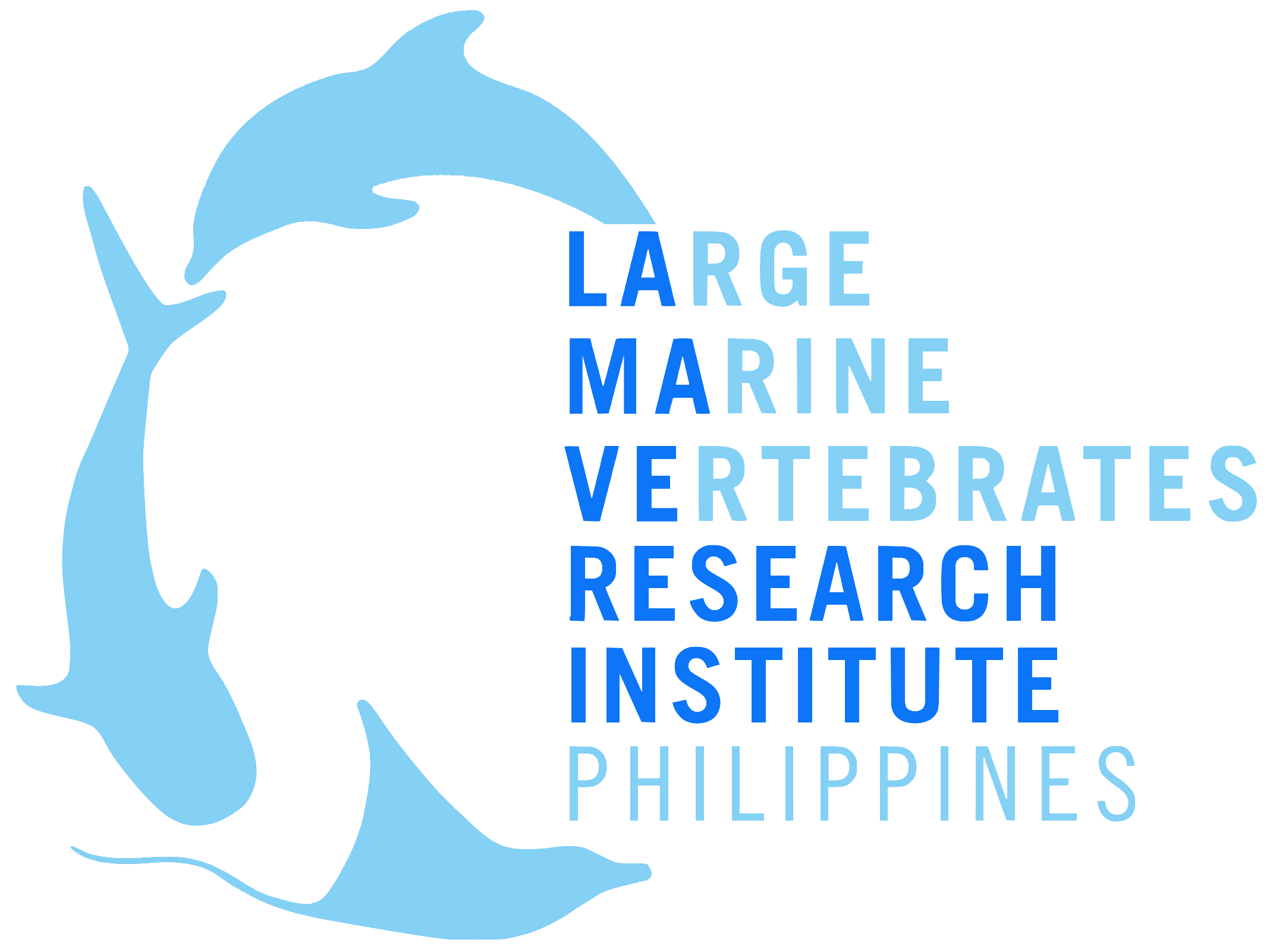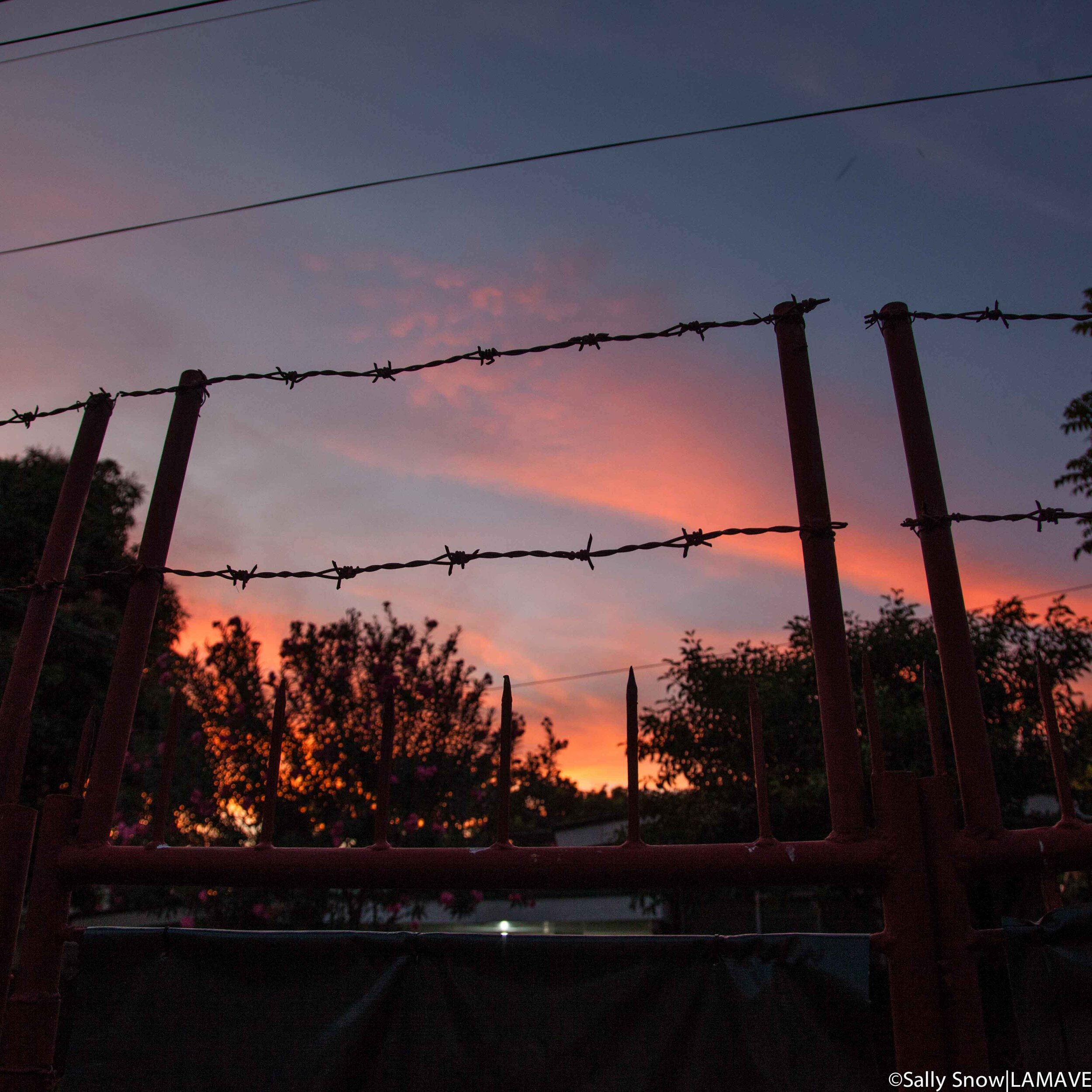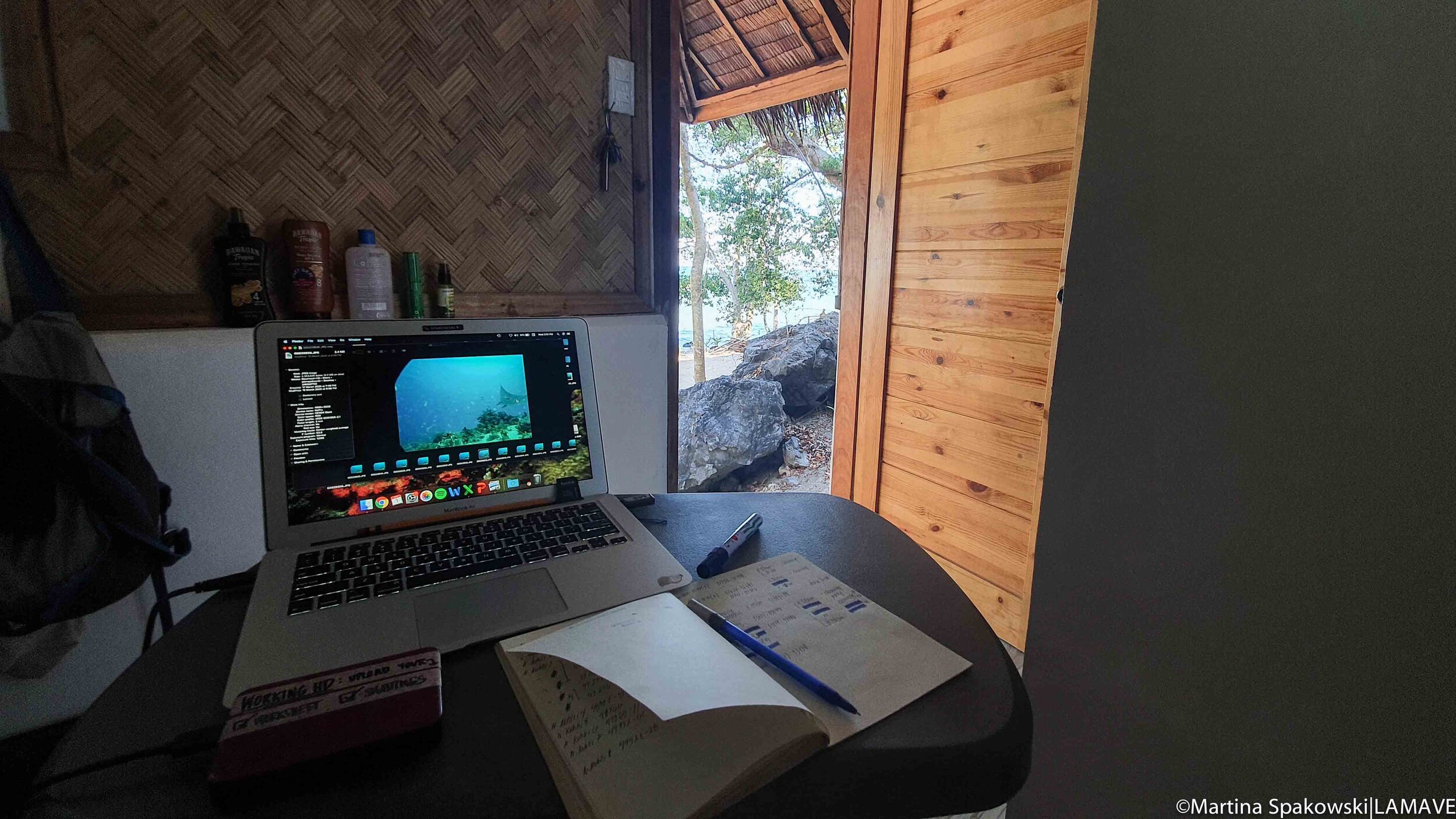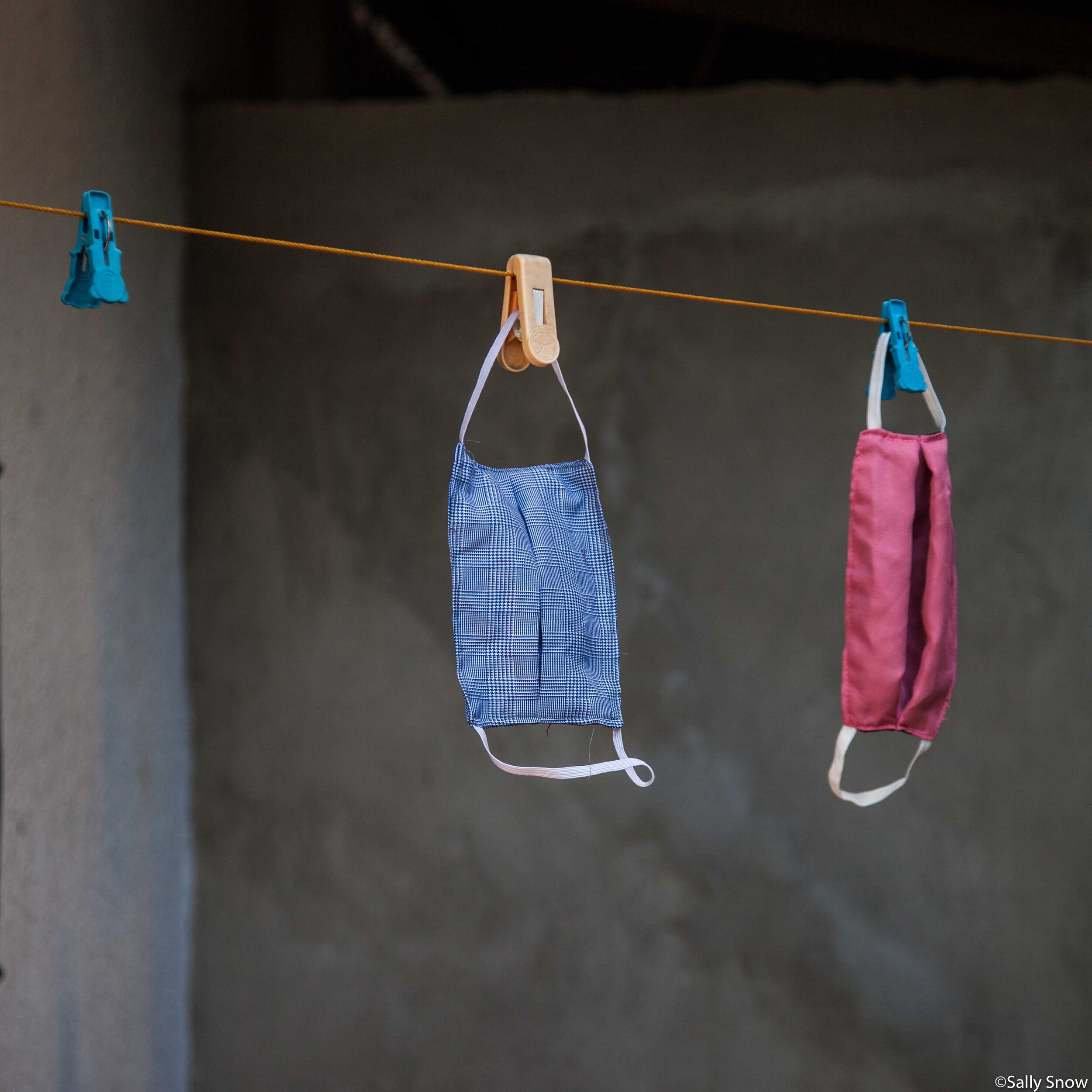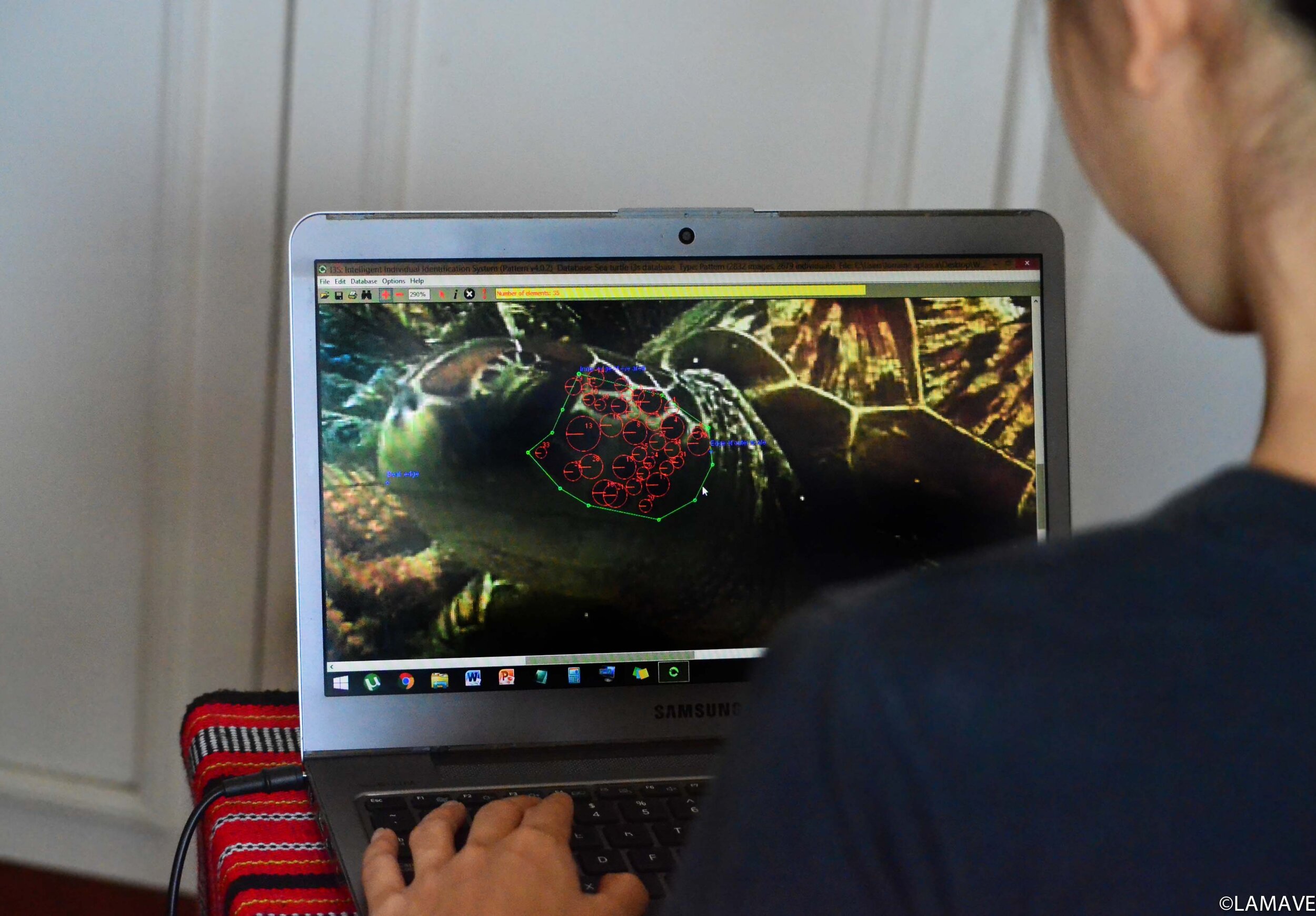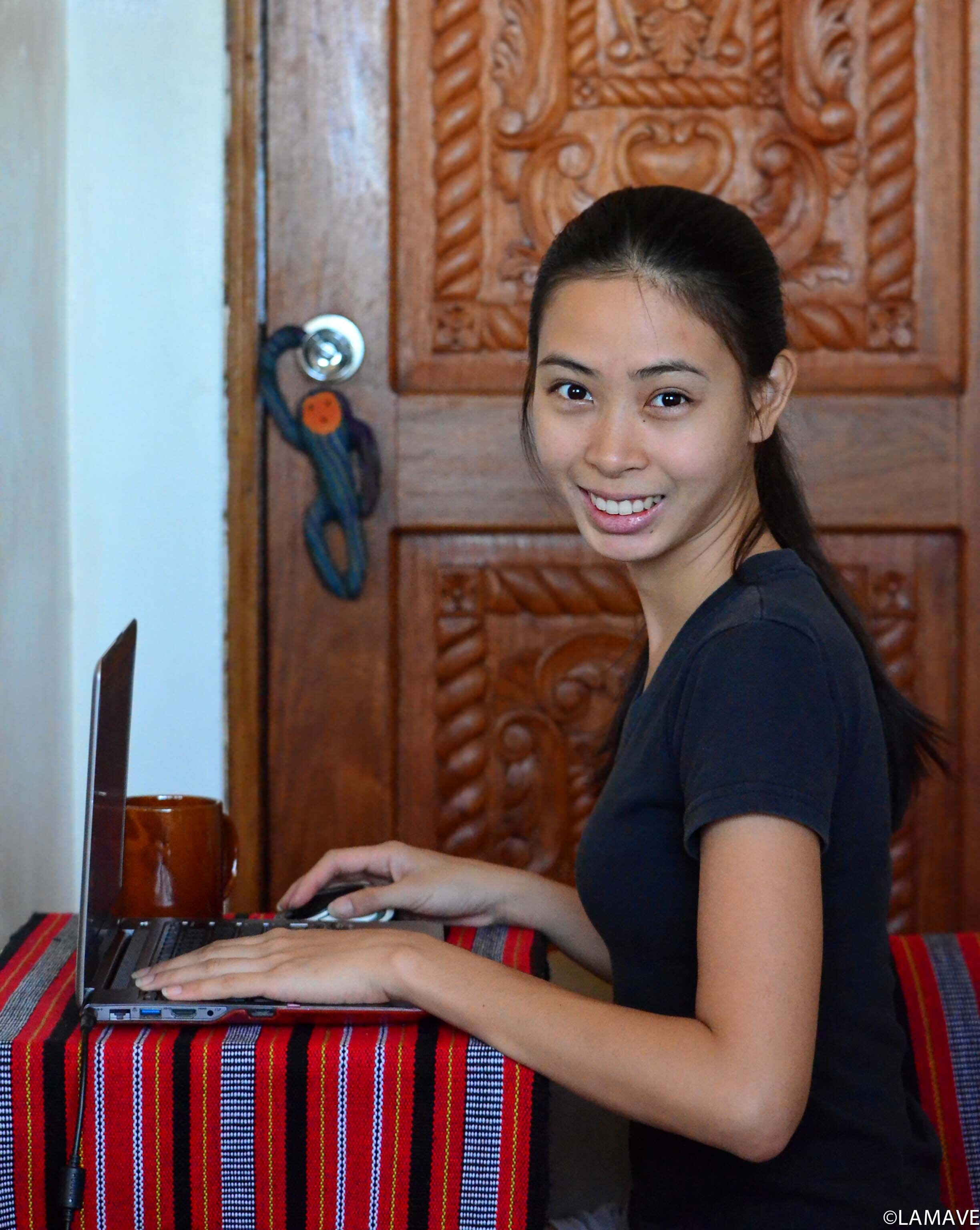NEWS
Conservation in the time of COVID-19
It’s been 128 days since our team felt the ebb and flow of the Philippine seas, the taste of saltwater in our snorkels and the occasional stinger on our cheek. As individuals deeply connected to the sea, it’s been tough being “dry docked” but it’s also been an important time for us as an organisation.
In keeping with local and national protocols to curb the global pandemic, all our research sites remain shut until further notice. The team saw summer come and go from our “home office” windows, rather than the ocean and our lives have been eerily quiet without the hard-working volunteers and communities which make up so much of our LAMAVE family. Despite these changes, our core team, have been working hard at home, focusing our efforts on conservation actions that are made through computer work, long hours with excel spreadsheets, statistical models and reports, and connecting with partners remotely. For the team this has been a rare moment to get our head down and make the most of this pause in “normal life”.
Along with our partners we launched “Become a Citizen Scientist for Turtle Conservation”, a 3-minute film that explains how you can contribute to turtle conservation in the Philippines and will build upon work by our Project Leader Lorraine Alpasca, who manages our national turtle population catalogue. Over lockdown Lorraine has been busy cleaning data of over 1000 turtles. We’ve also been working with multiple partners to consolidate stranding reports of marine turtles in the province of Bohol, and frequently assist with current strandings over the phone. Project Leader Sue Ong explains “The database is crucial if we are to understand historical trends of marine turtle stranding that have occurred - to know which species have stranded, how they’ve stranded, the threats, and the response to the event by people. This work will help us identify geographical stranding hotspots and better prepare communities on how to respond effectively”. Meanwhile our whale shark team have been analysing data and writing new scientific papers, soon to be published.
We’ve also spent this time strategising for the future. This period is significant, never before have we, as a global community and as individuals, been given a moment of reflection like this, a moment to recalibrate what is important, to consider our everyday actions and their consequence on the planet and its inhabitants. As an organisation dedicated to marine conservation and a sustainable future, this window has been an important time to focus on the changes we want to make in society and how we belief a healthy environment should be central to the future plans and actions of humanity.
The ceasing of traffic, land, air and sea as well as a pause in industry has seen air pollution reduce. Air quality in Manila improved amid COVID-19 lockdown while residents in Punjab India reported seeing the Himalayas from their homes, for the first time in 30 years due to a reduction in air pollution. A silver lining, or an unexpected opportunity to see how we can turn the climate crisis around, if, and only if we act now.
For the oceans lockdown has been a mixed bag. Wildlife hotspots that usually attract thousands of tourists have seen no visitors for months – an unprecedented moment of peace for our wildlife hosts, but a challenge for communities who rely on tourism for the local economy. While we’ve all been at home, transient visitors have made their way through Philippine waters – the infamous Blue Whale made an appearance while orcas were spotted in the Bohol Sea in mid-July for the first time in years. Unfortunately, it is not all good news, Oceana Philippines reported a spike in illegal fishing during lockdown with satellite tracking data showing commercial fishers taking advantage of reduced patrols to ply coastal waters they are forbidden from fishing in.
If this global pandemic has taught us anything, it is that it is time to put nature first. If you are able to support our conservation actions during this uncertain time, please donate today to help build a better future for nature and help us put conservation at the forefront of society.
Catch up with some of the online events our team have participated in over the last few months:
Podcast with GRID Magazine
Team members Alessandro Ponzo, Sally Snow and Sue Ong chatted to Paco Guerrero from GRID Magazine about marine wildlife tourism in the Philippines and the importance of making conservation a viable career in the Philippines and worldwide.
Webinar: Marine Megafauna and Plastic
Our President Ariana Agustines presented about 'Marine Megafauna and Plastic' as part of a special Coral Triangle Day webinar hosted by DENR Region 5 on June 11.
Quiz: Battle of the Brain Corals!
Ariana was also one of 10 contestants in “Battle of the Brain Corals!" a fantastic quiz hosted by Save Philippine Seas and hosted by Anna Oposa and Dave Gumban Albao.
WATCH IT HERE or if you want to make your own quiz, you can access the resource materials HERE.
Webinar: Whale Sharks: Understanding the largest fish in the sea
Gonzalo Aruajo joined ‘Oceans Stories’ hosted by DiveNinja Expeditions to talk about “Whale Sharks: Understanding the largest fish in the sea”.
Webinar: Marine Animal Rescue Operations in the Philippines
For World Oceans Day, Sue Ong and Alessandro Ponzo joined Kalikupan, A webinar series on climate change and marine wildlife. They spoke about LAMAVE’s work on Marine Animal Rescue Operations in the Philippines.
WATCH THE WHOLE SESSION OR CATCH THEM AT 1:19:00
Pannel: "The Pandemic & Turtle Conservation: Stories of Resilience Beyond our Borders"
Project Leader Sue Ong, joined an International Panel hosted by the Society for Conservation Biology Malaysia Chapter, Sue shared her experience from the Philippines and some of LAMAVE's strategies and future plans for turtle conservation.
WATCH ALL THE PANELISTS OR CATCH SUE AT 1:03:00
Film Launch: Become a Citizen Scientist for Turtle Conservation
Along with our partners, we launched a new film on how you can contribute to turtle conservation in the Philippines. The film presents important guidelines to abide by when encountering these amazing animals and explains how you can become a Citizen Scientist simply by sharing your turtle photographs. It is part of a wider collaborative project, whereby divers and snorkelers have already helped identify 1,272 endangered Green (Chelonia mydas) and Hawksbill Turtles (Eretmochelys imbricata) across the Philippines!
Youtube Series: Earth Live Lesson - “Whale Sharks, the mysteries surrounding the world's biggest fish”
Sally Snow hosted a whale shark lesson as part of Lizzie Daly’s Earth Live Lessons. Lizzie has hosted over 80 scientists, explorers and filmmakers on her YouTube platform as a special series in the time of COVID-19.
WATCH SALLY’S LESSON AND MORE HERE.
Youtube Series: Behind the Shot
Friend of LAMAVE Noel Guevara has been hosting a special series over lockdown “Behind the Shot” which features Philippine Photography talent, and the occasional international guest. One of the episodes features Conservation Photographer Steve De Neef – an early LAMAVE team member and a close friend who has helped document our work and contribute to conservation actions.
Instagram Live: Interacting with wildlife and wild places in the social media era: Protecting and preserving wild places.
LAMAVE Director Sally Snow launched Jackson Wild’s Live Series with Whitney Caskey, the Curriculum Director of University of Wyoming's Guide Certificate Program. They spoke about re-opening the planet's wild landscapes to visitors and how communities can be supported primarily through tourism refine communication strategies and guiding practices that foster better environmental stewardship? And how can we as individuals set a good example?
WATCH IT HERE or access this episode and more on the Jackson Wild Website.
